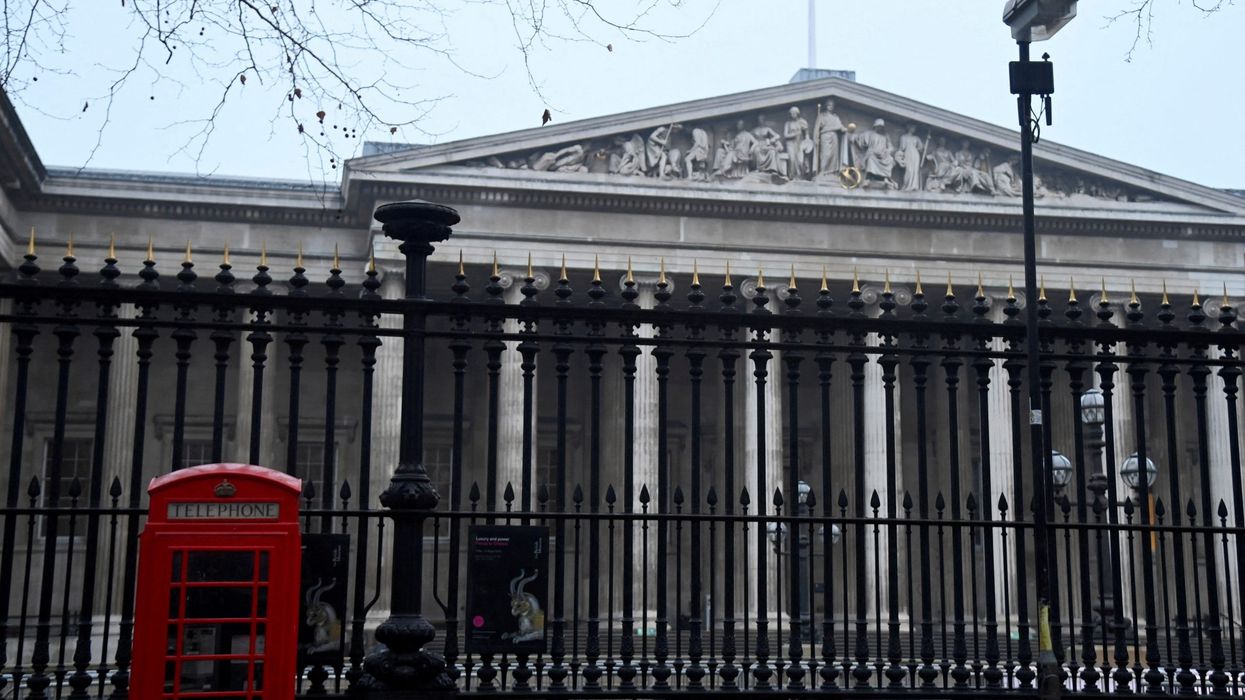The British Museum, a prominent tourist destination in London renowned for its vast collection of valuable artifacts, has taken the decision to expel an employee, pending legal action, following the discovery of theft of several treasures from a storeroom.
The famous public museum dedicated to human history, art, and culture, which also has several ancient Indian artefacts on display including a gallery devoted to ‘India: Amravati' sculptures, said on Wednesday (16) it has launched an independent review of security after items from the collection were found to be missing, stolen or damaged earlier this year.
The matter is also under investigation by the Economic Crime Command of the Metropolitan Police.
"We called in the police, imposed emergency measures to increase security, set up an independent review into what happened and lessons to learn, and used all the disciplinary powers available to us to deal with the individual we believe to be responsible,” said George Osborne, Chair of the British Museum.
The former UK chancellor of the exchequer laid out the museum's priority as threefold: to recover the stolen items; to find out what could have been done to stop this; and to do "whatever it takes", with investment in security and collection records, to make sure this doesn't happen again.
“It's a sad day for all who love our British Museum, but we're determined to right the wrongs and use the experience to build a stronger museum,” he said.
According to an official museum statement, the majority of the items in question were small pieces kept in a storeroom belonging to one of the museum's collections. They include gold jewellery and gems of semi-precious stones and glass dating from the 15th century BC to the 19th century AD.
None had recently been on public display, and they were kept primarily for academic and research purposes, the museum said.
“This is a highly unusual incident. I know I speak for all colleagues when I say that we take the safeguarding of all the items in our care extremely seriously. The museum apologises for what has happened, but we have now brought an end to this – and we are determined to put things right,” said Hartwig Fischer, Director of the British Museum.
“We have already tightened our security arrangements and we are working alongside outside experts to complete a definitive account of what is missing, damaged and stolen. This will allow us to throw our efforts into the recovery of objects,” he said.
An independent review will be led by former trustee Sir Nigel Boardman, and Lucy D'Orsi, Chief Constable of the British Transport Police (BTP), who will conduct the “painstaking job, involving internal and external experts” to look into the matter and provide recommendations regarding future security arrangements at the landmark institution.
They will also kickstart a "vigorous programme" to recover the missing items.
“The British Museum has been the victim of theft and we are absolutely determined to use our review in order to get to the bottom of what happened, and ensure lessons are learnt.
"We are working alongside the Metropolitan Police in the interest of criminal justice to support any investigations,” said Boardman.
The museum is consistently ranked among the top visitor landmarks in the UK capital, attracting over 6 million people annually.
(PTI)




